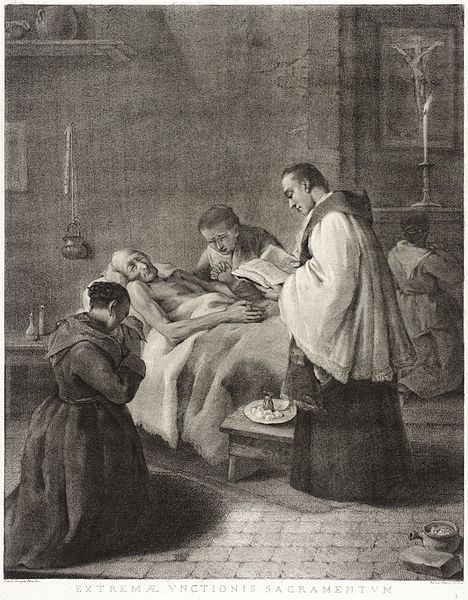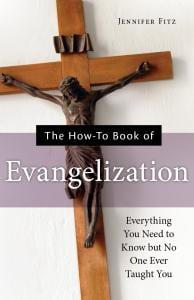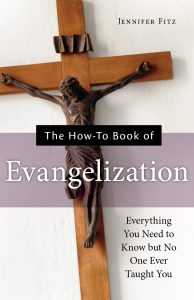The amount of vitriol directed towards bishops making coronavirus decisions is . . . telling.
I say this as someone who is not, at all, hesitant to call out egregious behavior at any level of the hierarchy. I have spent enough time inside the sausage-making factory to know very well that there are serious, serious problems in the Catholic Church. Your bishop having to make difficult decisions under immense time pressure with very little information? Not the same thing.
If it’s not even your own bishop you’re sending the nastygrams to? Oh please. Who died and made you an expert on someone else’s diocese?
***
Let’s try an exercise in Benefit of the Doubt 101. To recap, from the CCC:
2477 Respect for the reputation of persons forbids every attitude and word likely to cause them unjust injury. He becomes guilty:
– of rash judgment who, even tacitly, assumes as true, without sufficient foundation, the moral fault of a neighbor;
– of detraction who, without objectively valid reason, discloses another’s faults and failings to persons who did not know them;
– of calumny who, by remarks contrary to the truth, harms the reputation of others and gives occasion for false judgments concerning them.
2478 To avoid rash judgment, everyone should be careful to interpret insofar as possible his neighbor’s thoughts, words, and deeds in a favorable way:
- Every good Christian ought to be more ready to give a favorable interpretation to another’s statement than to condemn it. But if he cannot do so, let him ask how the other understands it. And if the latter understands it badly, let the former correct him with love. If that does not suffice, let the Christian try all suitable ways to bring the other to a correct interpretation so that he may be saved.
2479 Detraction and calumny destroy the reputation and honor of one’s neighbor. Honor is the social witness given to human dignity, and everyone enjoys a natural right to the honor of his name and reputation and to respect. Thus, detraction and calumny offend against the virtues of justice and charity.
Now for our practice exercise, here are the extensive restrictions Bishop Guglielmone announced for the Diocese of Charleston on Sunday:
. . . I am granting dispensation for your Sunday Mass obligation for the weekends of March 21-22 and March 27-28. Additionally, all scheduled Confessions are cancelled. Any baptisms planned in the next sixteen days should be rescheduled. All quinceañeras must be canceled or rescheduled. Confirmations will be rescheduled according to each parish’s calendar. Funerals and weddings may occur but will be celebrated privately with just the immediate family present. Unfortunately, perpetual adoration will have to be temporarily discontinued. There will be no regularly scheduled parish activities until further notice. All scheduled penance services are cancelled, and there will be no Communion calls at hospitals, nursing homes, or private homes until further notice.
The sole exception to this policy is the celebration of the final sacraments for those in danger of death. If you need a priest for the Anointing of the Sick or Last Rites, your pastor will provide a number you can call.
Parish churches will remain open during their normal hours so that you can come to pray.
Whoa! Obviously he hates Jesus, right? Not so fast.
We cannot, of course, know the inner thoughts of the bishop. Experience tells us that even our own motivations are often difficult to fully understand. The exercise of using our imaginations to guess at a favorable reason behind the bishop’s decision does not cause Instant Saintliness to descend upon the man. But it is good for our souls to carry out this exercise, so let’s do it. I’m gonna lay out my answer to the practice problem, but this is one of those open-ended essay questions that allows for multiple possible correct responses.
***
I observe that just this week, Bishop Guglielmone laid to rest a still-young priest. If ever there were an incident to make you keenly aware of the precariousness of life and the immeasurable value of a priest’s ministry, that was it.
Next I observe that at this writing, at least ten priests in Italy have died of COVID-19. Many more are infected, and note that survival of a serious case often entails long recovery and debilitating loss of lung function, at least temporarily. We have no information about the long term effects of infection.
Finally I observe that the priests of the Diocese of the Charleston are not known for their retiring manner or unwillingness to minister to the people. Short of an unequivocal, clearly-defined order, there is just no locking these guys up for safekeeping. You think your boomer parents are hard-headed? Smart money says that as we speak, countless stubborn old men across the diocese are fuming at being put on a leash by their bishop, convinced that having survived war / cholera / parish council, hell no they aren’t going to back down now.
And yet we know that statistically speaking, we can expect that COVID-19 is going to claim its share of priests. If you wish to contemplate the role of faith in such outcomes, study the lives of the many saints who perished nobly while ministering to the sick. The question, then, is not whether we will lose many priests to this epidemic, but rather how.
Now let us review some facts from your fifth grade catechism class:
- Any person (Catholic or not) can baptize validly, and in an emergency can baptize licitly. Furthermore, baptism of desire is effective for salvation. Therefore, if you must choose where to kill your priests, this is not the best place.
- Marriage is probably not the best hill to die on (and you can have your wedding if you’re okay with a small service), and priests cannot ordain so that’s a moot point. Confirmation would be worth considering, and here I’ll insert my rant that I wish all bishops would get more on the stick about the value of confirmation. Okay, end rant, let’s move on.
- Confession is a tough one. There are workarounds, like the drive-through method. Ask your bishops, charitably, to please consider figuring out ways to safely administer general absolution. Still, perfect contrition does suffice. For the moment we will charitably assume that having suspended the sacrament of Reconciliation, the bishop is working diligently on good tactics in view of reinstating it in a priest-protecting manner. But, remember: Perfect contrition suffices. Cultivate in your heart a more fervent love of God.
- Last Rites, in contrast, cannot be delayed (as with Matrimony, Confirmation, or the Eucharist), it cannot be carried out by laymen (as with baptism), there are no substitutes available (as with perfect contrition in place of Confession), and its effects are soul-saving.
My conclusion:
It is horrifying to have to be making these sorts of spiritual-triage decisions, just as it is horrifying for a doctor to have to decide which patients to treat and not to treat. And yet, your priest can only catch the virus once and then it’s caught.
The bishop’s decision that his men will be deployed to go straight to the most dangerous field of ministry, encountering those who are actively sick, and who are to be ministered to in environments where contagion is rife, suggests that cowardice is not, at all, a factor here.
Pray for your priests, pray for your bishop, and knock it off with the rash judgement.

Artwork: Extreme Unction, etching of a priest visiting a deathbed while the family prays, Italy circa 1755, courtesy of Wikimedia, Public Domain.
Pro-Tip: My kids talked me onto Spotify this winter, and on my way to the most recent parish council* meeting, this bit of colorful music was playing as I prayed for myself and for our priests:
I can report that internalizing the refrain “Don’t Murder Me” was highly effective. I had resolved to speak at least three peaceful sentences before devolving into yelling at my pastor, and get this: I made it all the way to the end of the night! And then I yelled. But not in front of everyone? So that was better? Maybe?
*Note well: The very moment my pastor asked me to volunteer for the council, I instructed him to kick me off as soon as he got sick of me, no hard feelings, this is what it’s like to have me in your parish. So either he likes having a contrarian in the group or he’s taken on one of those masochist St. Rose of Lima penances and now secretly wishes he had vowed to roll in nettles every night instead. I dunno. Pray for your priests.











